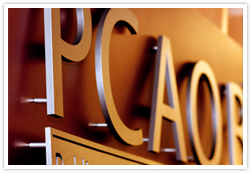Two Public Company Accounting Oversight Board (PCAOB) proposals to update audit standards regarding general responsibilities of the auditor and use of technology-assisted analysis in conducting an audit received approval from the U.S. Securities and Exchange Commission (SEC).

“I am pleased that the PCAOB is fulfilling its obligations under the Sarbanes-Oxley Act by updating its standards and rules regarding the practice of auditing,” said SEC Chairman Gary Gensler on Aug. 20. “I’m proud to support the PCAOB’s proposed changes to instill greater trust among investors and issuers in our markets.”
The SEC also approved a proposal amending a PCAOB ethics rule governing the liability of an associated person when they directly and substantially contribute to audit firm violations, the commission said on Tuesday.
“We thank our SEC colleagues for their review and approval of the PCAOB’s standard-setting and rulemaking actions,” PCAOB Chairwoman Erica Williams said. “These changes are all wins for investors.”
The PCAOB, a nonprofit corporation established by Congress to oversee the audits of public companies in order to protect investors and further the public interest in the preparation of accurate and independent audit reports, also oversees the audits of brokers and dealers registered with the SEC.
“One of the board’s top strategic goals is to modernize our standards and rules to ensure they are best fit to protect investors from today’s risks,” said Williams. “Our markets are evolving every day. To keep investors protected in an era of rapid change, our standards and rules must keep up.”
Specifically, the SEC approvals will allow the PCAOB to modernize in three crucial areas, she said.
The SEC-approved update to AS 1000, General Responsibilities of the Auditor in Conducting an Audit, will help ensure that PCAOB standards are clear, consistent, and up to date when it comes to auditing fundamentals, said Williams.
These standards cover such foundational topics as affirming the auditor’s duty to protect investors through the preparation and issuance of informative, accurate, and independent auditor’s reports; the exercise of due professional care, professional skepticism, and professional judgment when performing audits; and compliance with ethics and independence rules, according to the SEC.
“By replacing a group of standards that had not changed significantly since their adoption on an interim basis in 2003, the new standard also advances the board’s strategic goal to modernize standards,” Williams explained.
Secondly, the SEC approved the PCAOB’s amendments to AS 1105, Audit Evidence, and AS 2301, The Auditor’s Response to the Risks of Material Misstatement to address the use of technology-assisted data analysis in audit procedures. The amendments specify and clarify auditors’ responsibilities when the auditor uses such analytical tools in conducting audits, the commission said.
“Our updates related to technology-assisted analysis reduce the risk that auditors who use technology-assisted analysis will issue an opinion without obtaining relevant and reliable audit evidence,” said Wiliams. “The changes also modernize certain aspects of two essential PCAOB standards so they keep up with the increasing use of technology by auditors and preparers of financial statements.”
Lastly, the SEC approved an update to Rule 3502, Responsibility Not to Knowingly or Recklessly Contribute to Violations, governing the liability of an associated person of a registered public accounting firm who directly and substantially contributes to that firm’s violations of the laws, rules, and standards that the PCAOB enforces.
The amendments to Rule 3502 revise from recklessness to negligence the standard for an associated person’s contributory liability, while maintaining the requirement that to be held liable, an associated person must have contributed to the firm’s violation “directly and substantially,” the SEC said.
“With this rulemaking, which updates a rule that is nearly 20 years old, the board has aligned PCAOB rules to what investors expect: that when an associated person’s negligence directly and substantially contributes to firm violations, the PCAOB has tools to hold them accountable,” said Williams.
SEC Chief Accountant Paul Munter called the SEC-approved amendments to Rule 3502 critical.
“Moving the PCAOB contributory liability standard from recklessness to negligence aligns the rule with other negligence-based professional conduct standards, including the standard for sanctions by the SEC for individuals negligently contributing to firm violations, as well as certain state professional licensing requirements, that have long governed the accounting profession, and aligns the rule with the same standard of reasonable care that auditors are required to exercise when executing their professional duties,” said Munter.
The SEC said that the amendments to Rule 3502 will become effective in 60 days, while AS 1000, and other related amendments to PCAOB standards, will take effect for audits of financial statements for fiscal years beginning on or after Dec. 15.
However, for firms that provide audit opinions for 100 or fewer issuers during the calendar year ending Dec. 31, the amendment related to the documentation completion date requirement will take effect for audits of financial statements for fiscal years beginning on or after Dec. 15, 2025.
The amendments to AS 1105 and AS 2301, and conforming amendments, will take effect for audits of financial statements for fiscal years beginning on or after Dec. 15, 2025, said the SEC.